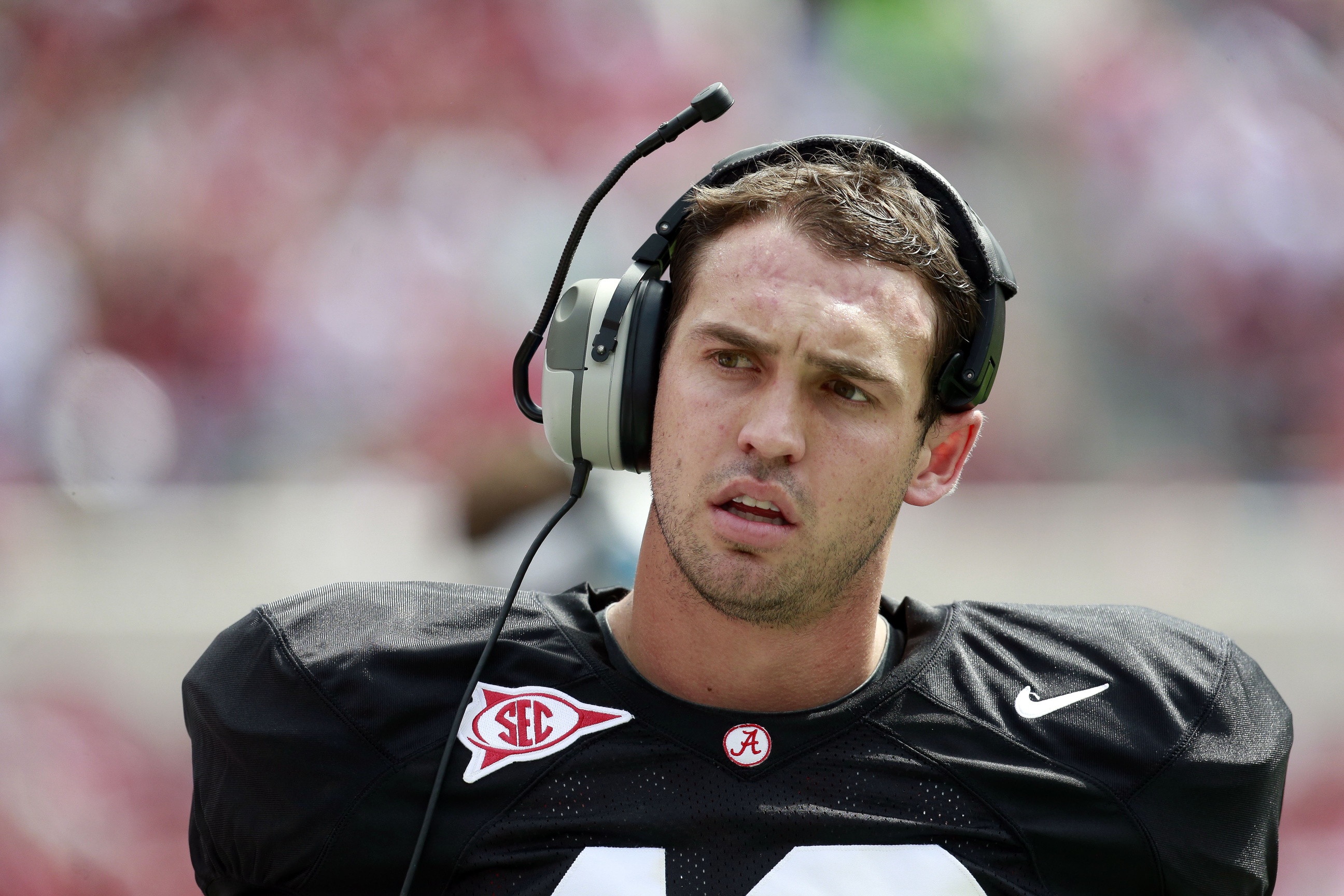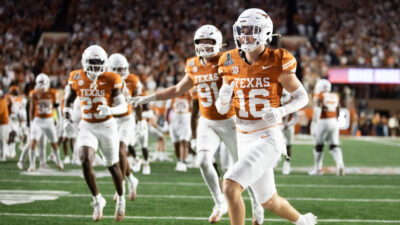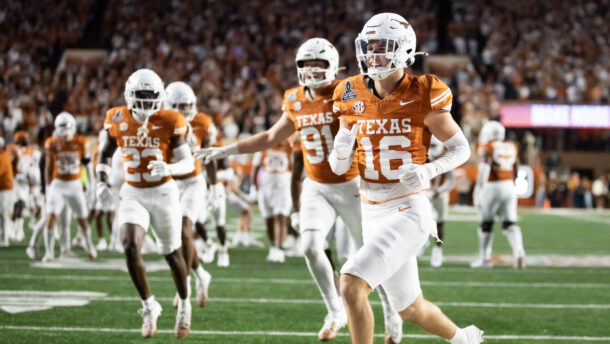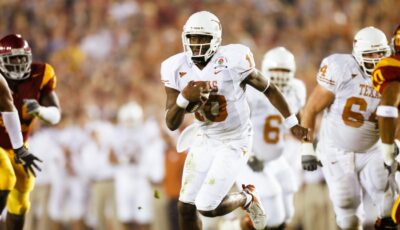
A couple years ago, it seemed that every SEC West team was either peaking or on the rise.
Alabama was Alabama, but Auburn looked poised to challenge its hated rival for SEC supremacy. LSU was rolling under Les Miles. Texas A&M was basking in the glow of Johnny Manziel’s Heisman Trophy season. The Mississippi schools were ascending, Ole Miss through repeated banner recruiting years and Mississippi State through overachieving, unheralded stars like Dak Prescott. And Arkansas was piecing together a Wisconsin-style power run game.
This year, that optimism seems to be a little tempered.
Alabama is still Alabama, but this year, Nick Saban needs to find his quarterback and replace a Heisman Trophy winner at running back with an increasingly thin stable of candidates. Auburn lost a ton of starters. LSU is coming off a season where Miles nearly lost his job. Ole Miss is facing an NCAA inquiry, Mississippi State is starting life after Dak and Arkansas is having to replace its stars. Meanwhile, Texas A&M couldn’t hang on to a series of star quarterback recruits and now must rest its hopes on a transfer.
While it’s still the premier division in college football, this year’s vaunted SEC West has more vulnerable teams than it has had in recent memory. Here are four key factors that will help determine who wins:
Does Alabama find its QB and RB?
Certainly, finding a new quarterback has not been a problem for the Crimson Tide. Alabama is looking for its fourth starting quarterback in as many years, which might seem problematic on the surface but has been anything but.
AJ McCarron was a three-year starter who won two national championships. In the past two years, Bama has been able to turn to one-year senior starters in Blake Sims and Jacob Coker for solid performances. That means the last time Alabama did not have a senior quarterback was McCarron’s junior season in 2012.
Reason to panic? Hardly. The constant turnover has not stopped the Tide from going 37-5 with a national title in that stretch. And the likely candidates — Cooper Bateman (who emerged from spring as the likely starter), David Cornwell, Blake Barnett and Jalen Hurts — were all highly regarded talents out of high school. Bateman would continue Alabama’s streak of one-year senior starters if he emerges as the man for the job.
At running back, Alabama lost Heisman Trophy winner Derrick Henry and is a little thin at the position with presumptive starter Bo Scarbrough and sophomore Damien Harris as the only healthy scholarship backs (Ronnie Clark has been battling an Achilles tendon injury).
But like the quarterback position, Scarbrough and Harris were both highly regarded recruits, and more talented help is on the way this summer from the recruiting class.
So there are reasons to worry. Just because Sims and Coker worked out doesn’t mean Bateman will. And one more key injury could mean the Tide might be relying on true freshmen running backs for significant snaps.
With an elite defense returning and talent all over the field, Alabama might be the odds-on favorite to defend its national championship — unless the new QBs and RBs don’t live up to the usual standard.
Does LSU have the leadership to challenge?
LSU’s perennial problem ever since the talented 2011 team went undefeated — and subsequently lost to Alabama in the BCS National Championship Game — has been that it could never keep its talented rising seniors out of the NFL Draft.
One might argue that the difference between the Tide and Tigers the last four years has been that LSU has annually had the younger team.
That’s not the case this year.
LSU had several seemingly draft-ready juniors who opted to return to school and, as a result, areas where the Tigers might have been weak could be strengths. This is particularly true on the defensive line (where Davon Godchaux and Christian LaCouture both opted to return for their senior seasons) and linebacker (where Kendell Beckwith returns).
Given that LSU, unlike Alabama, also has a returning starter at quarterback (Brandon Harris) and a Heisman Trophy favorite at running back (Leonard Fournette), could this be the year LSU actually has a more mature team than Alabama?
Mississippi on the decline?
One of the great stories in college football in the last couple of years has been the rise of the Mississippi schools — both Ole Miss and Mississippi State — to national prominence.
But there is reason to think both teams could be returning to the pack this year.
At Ole Miss, it’s because the loss of cornerstone pieces from its vaunted 2013 recruiting class, and the ramifications of how it allegedly landed at least one member of that class. With defensive tackle Robert Nkemdiche, wide receiver Laquon Treadwell and offensive tackle Laremy Tunsil all gone to the NFL, the Rebels’ talent base took a big hit.
And Tunsil’s admission that he received improper benefits to go to Ole Miss has the program reeling, already having put itself under self-imposed sanctions in the hopes the NCAA doesn’t come down harder.
Ole Miss still has a lot of talent, led by the league’s best returning quarterback in Chad Kelly. Perhaps there is still enough fuel left in the tank for the Rebels to put together another big year before sanctions begin to take a toll.
At Mississippi State, the loss of do-everything quarterback Dak Prescott could mark the end of an era. He was so valuable with his combination of running, throwing and, most importantly, leadership that he may be impossible to replace.
Surely, Dan Mullen has plenty of bullets in the gun. MSU has a good defensive front seven and 13 returning starters. However, the difference between the Bulldogs being merely competitive and being a team that, like the 2014 team, can ascend to a No. 1 ranking in mid-October is a difference-maker like Prescott.
Mullen’s ability to develop three-star talents into legitimate SEC players is proven, but he still needs a guy who can carry an overachieving bunch over the top.
Do the Bulldogs have that kind of carry-the-team stud this year?
All these new QBs
Kelly and Brandon Harris may be the only starting quarterbacks in the division who started last year as Alabama, Mississippi State, Texas A&M, Arkansas and Auburn all likely will have new starters.
Yes, that includes Auburn, which returns both quarterbacks (Jeremy Johnson and Sean White) who split time last year. Neither were particularly effective, and early indications are that the job could be junior college transfer John Franklin III’s to lose.
Everywhere else, there seems to be serious question marks. Alabama (Coker), Mississippi State (Prescott) and Arkansas (Brandon Allen), all lost 3,000-yard passers. Meanwhile, Texas A&M couldn’t keep a quarterback and lost its Manziel dividend. Kenny Hill, Kyle Allen and Kyler Murray — elite quarterback prospects A&M landed in the aftermath of Manziel’s successful run — all left the program within the course of a year, with Allen and Murray, last year’s starters, both transferring shortly after the 2015 season.
Now, the school once so loaded with quarterback prospects is relying on Oklahoma transfer Trevor Knight to stop the bleeding.
That’s a lot of new blood at a key position, but it’s safe to assume that somebody will get a big year from a first-year starter. After all, remember that Manziel and Cam Newton made immediate, profound impacts on their teams, and Alabama won the national championship last year with a one-year starter (Coker).
Is one of the new starters ready to make that kind of impact this year?







